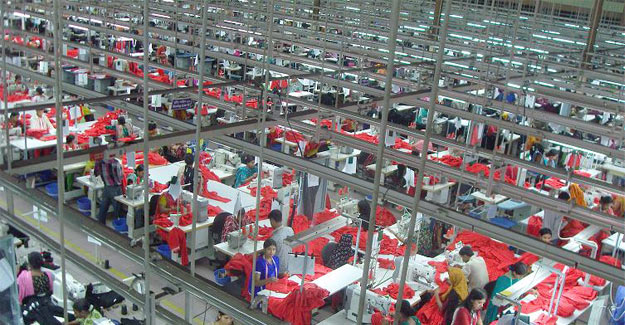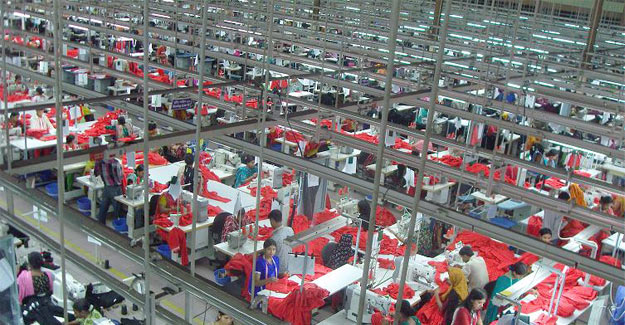
New report says Cambodian government not protecting its garment workers
There is now one more report by a human rights group, highlighting the plight of the Cambodian garment workers. The Human Rights Watch report, based on interviews with 0.03% of the 700,000 garment workers in the country, states that the Cambodian government is failing to protect garment workers who are producing for international apparel brands from serious labor rights abuses. The predominantly women workers often experience forced overtime, pregnancy-based discrimination, and anti-union practices that neither the government nor major brands have adequately addressed, the report states. The 140-page report, `Work Faster or Get Out: Labor Rights Abuses in Cambodia’s Garment Industry’ documents lax government enforcement of labor laws and brand actions that hinder monitoring and compliance. In recent years, wage protests, instances of garment workers fainting, and burdensome union registration procedures have spotlighted the plight of workers in Cambodia’s garment factories.
Human Rights Watch found that many factories repeatedly issued unlawful short-term contracts to avoid paying workers maternity and other benefits, and to intimidate and control them. Small factories that subcontract to larger export-oriented factories are more likely to hire workers on a casual basis, making it harder for workers to assert their rights because they risk being easily fired. Apparel brands have not taken adequate steps to end the illegal short-term contracts in their supplier factories – even where their supplier codes of conduct have clauses limiting their use, according to the report.
Cambodia’s garment industry, dominated by foreign investments from Hong Kong, Taiwan, China, Singapore, Malaysia, and South Korea, is critical to the country’s economy and women’s livelihoods. Women make up 90% of the country’s more than 700,000 garment workers in 1,200 garment businesses, according to the Ministry of Industry and Handicraft.
The Human Rights Watch report is based on interviews with more than 340 people, including 270 workers from 73 factories in Phnom Penh and nearby provinces, union leaders, government representatives, labor rights advocates, the Garment Manufacturers Association of Cambodia, and international apparel brand representatives. Of some 200 apparel brands that source from Cambodia, Human Rights Watch was in contact with Adidas, Armani, Gap, H&M, Joe Fresh, and Marks and Spencer.
While Cambodian labor law requires overtime work to be voluntary, workers from 48 factories supplying to international brands told Human Rights Watch that it was forced. In some cases, the pressure to meet production targets increased after minimum wages increased in 2013 and 2014. In February 2015, the Labor Ministry called again for enforcement of factory overtime regulations. Women workers from 30 factories cited specific abuses, including refusing to hire, renew short-term contracts, or provide reasonable accommodation for pregnant workers, making it difficult for them to work in factories. Workers from some factories found it difficult to take medically approved sick leave. Human Rights Watch also documented unlawful child labor in 11 of the factories examined. The worst abuses were reported in smaller subcontractor factories, which produce for larger factories with export licenses.
According to the Labor Ministry, from 2009 through 2013, officials imposed fines on only 10 factories and initiated legal action against 7 factories – all in 2011. While the number of fines jumped to 25 in the first 11 months of 2014, it continues to be abysmally low when compared to the number of factories overall and the persistent patterns of labor rights violations. In 2014, the Labor Ministry began an integrated labor inspection mechanism and improved training. But significant reforms are needed to build credibility given corruption allegations and to improve the inspectorate’s track record, Human Rights Watch said.
Among the six brands with whom Human Rights Watch was in contact, Adidas, Gap, and H&M seriously discussed their efforts to address the problems found. Adidas and H&M also publicly disclose the names of their suppliers and periodically update their lists. Marks and Spencer has committed to disclosing their supplier list in 2016. Only Adidas has created a process for workers to seek whistleblower protection. While there is no denying that labor abuse is a practice in many garment factories, labor rights groups need to go beyond the large, organised buyers who work with more transparency, and bring out the problems faced by workers of factories who supply to smaller brands, where there is very little or no will to look at social and environmental practices.
Independent union leaders from the Coalition of Cambodian Apparel Workers Democratic Union (CCAWDU), the Cambodian Alliance of Trade Unions (CATU), the National Independent Federation of Textile Unions in Cambodia (NIFTUC), the Collective Union of Movement of Workers (CUMW), and other labor rights activists from the Community Legal Education Center (CLEC) and Workers Information Centre (WIC) have been at the forefront of highlighting labor rights problems in factories and helping workers assert their rights. Human Rights Watch called on the government to revamp its labor inspections and systematically hold factories accountable for abuses. Apparel brands should take more effective measures to prevent and correct labor rights abuses in the factories that produce for them.

Textile Excellence
If you wish to Subscribe to Textile Excellence Print Edition, kindly fill in the below form and we shall get back to you with details.












